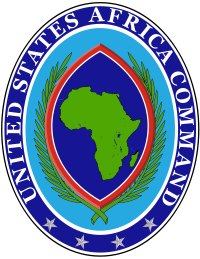The US is expanding its covert military and intelligence operations across Africa, establishing a network of small bases and surveillance procedures as special operations forces infiltrate and train numerous armies, all under the pretext of fighting terrorism.
 “At the heart of the surveillance operations,” reports the Washington Post, “are small, unarmed turboprop aircraft disguised as private planes. Equipped with hidden sensors that can record full-motion video, track infrared heat patterns, and vacuum up radio and cellphone signals, the planes refuel on isolated airstrips favored by African bush pilots, extending their effective flight range by thousands of miles.”
“At the heart of the surveillance operations,” reports the Washington Post, “are small, unarmed turboprop aircraft disguised as private planes. Equipped with hidden sensors that can record full-motion video, track infrared heat patterns, and vacuum up radio and cellphone signals, the planes refuel on isolated airstrips favored by African bush pilots, extending their effective flight range by thousands of miles.”
The extent of the Obama administration’s military incursions and intelligence operations throughout Africa is not well known, since they don’t think it’s any of the American people’s business. But activities have intensified in recent months, with anonymous US officials citing an imperative “shadow war against al-Qaeda affiliates and other militant groups.”
The strategy is characterized by military aid to and reliance on brutish, undemocratic regimes, proxy militias, and targeted special operations as opposed to invasion and occupation. All of this is done without the consent of Congress and for the most part in secret.
The growth of AFRICOM, the Pentagon’s designation for the entire continent, has included an increase in combat brigades and Joint Special Operations Command (JSOC).
The Obama administration has deployed Marines and assisted a spate of African tyrannies engaged in warfare. Murky justifications of al Qaeda-like enemies color the stated mission, but these expansions of empire into Africa are a prime example of going abroad in search of monsters to destroy.
Through the Pentagon’s Africa Command, the US is now training and equipping militaries in countries including Algeria, Burkina Faso, Chad, Mali, Mauritania, Morocco, Niger, Nigeria, Senegal and Tunisia in the name of preventing “terrorists from establishing sanctuaries.” The strategy appears irreconcilable with recent history, however, given the US-sponsored invasion of Somalia by Ethiopia in 2006 gave rise to the militant group al-Shabaab – now ironically justifying current interventions.
Only recently, the US helped force regime change in Libya, is fueling a proxy war in Somalia, and has sent combat forces to Uganda, among other campaigns.
While these interventions have the pretext of fighting terrorism, the US faces no significant terrorist threats in Africa that anybody is willing to demonstrate. A good example is Boko Haram in Nigeria.
Back in October, Secretary of State Hillary Clinton met with Nigerian Foreign Minister Olugbenga Ashiru, and pledged an assorted variety of newfangled interventions from economic stimulus to fighting terrorism. Then reports came out in November that U.S. troops had been sent on the ground in Nigeriato help fight Boko Haram.
A Congressional report issued at the very beginning of December said “Boko Haram has quickly evolved and poses an emerging threat to US interests and the US homeland,” and justifies entrenching military and security interests with the Nigerian government. But Patrick Meehan, chairman of the U.S. Congressional committee that drew up the report, said “While I recognize there is little evidence at this moment to suggest Boko Haram is planning attacks against the [US] homeland, lack of evidence does not mean it cannot happen.”
The more likely grounds for the growth of AFRICOM and the expanding US infiltration of Africa is imperial control and domination for the sake of US hegemony. The Obama administration has taken an antagonistic posture towards a rising China in the Asia-Pacific region, and may also doing so in Africa.
Indeed, “China-Africa trade grew 1000% from $10 billion in 2000 to $107 billion in 2008,” a trend Washington apparently intends to counter with persistent efforts to produce client military states throughout Africa and extend economic influence over the continent.





Three Empire world — An impossible situation
Could Russia and China put Empire USA out of it’s misery in a global war? Of course, so why are we allowing the richest of all the rich on earth to rule our Empire? For a man’s pride is in direct proportion to his wealth, surely the height of stupidity and the reverse of wisdom, for, “Pride goeth before destruction and a haughty spirit before a fall.”
Look, Libya was about Africa and Africa is about Obama to continue with his plan to destroy the unity of African people no matter what the costs, that is why his been called the “politician” by his people like Joe Biden. US has lost it's betting in Middle East, they are stocked in Afghanistan and they don't know what is going to happen in Syria or what they need to do with the alliance between Russia, Iran, Iraq China and Syria, so Obama needed to keep the US – NATO militarism regimes busy and find new ways for US-NATO dishonesty to continue, now if that was for Kaddafi’s gold or Oil or whatever yet the project Libya was and is about Africa abelling US and EU to divid iAfrica as much as possible. US and EU have no one but brutal regimes as Saudis and other dictatorial regimes to cooperate with, US and EU have no prospect for democracy nor they understand the concept, so helping terrorism or state sponsored terrorism regimes, the barbarians, or whoever can help is part of their daily routine for their goal.
What about Antarctica? Those penguins are up to no good.